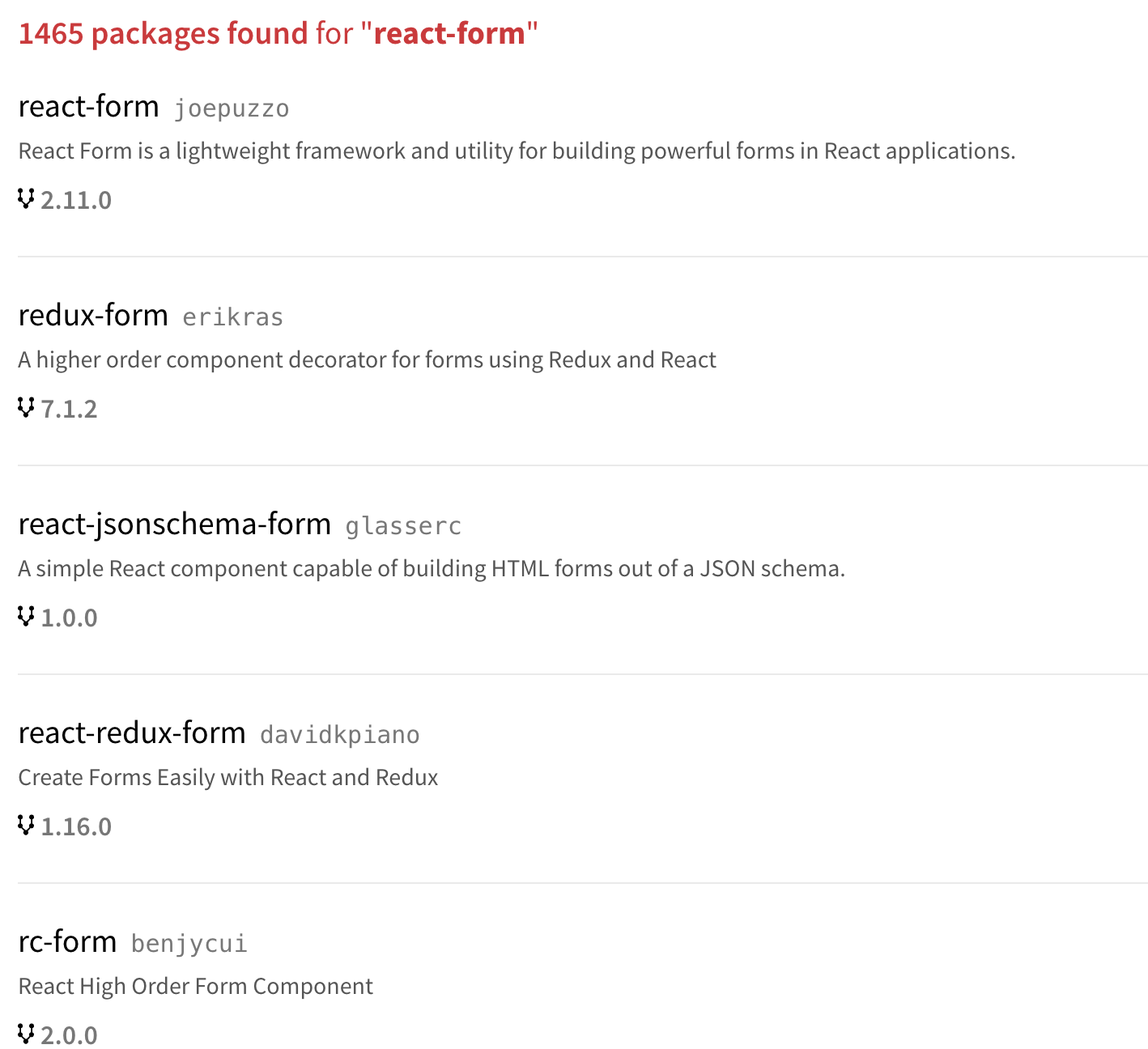Easier Forms with Render Props
A shameless story of self promotion
Gian Marco Toso

@gianmarcotoso

gianmarcotoso

gianmarcotoso.com

polarityb.it
Software Engineer, The Pirate I Was Meant To Be
🎩 About Me 🎩
Born and raised in Turin, Italy

@gianmarcotoso

gianmarcotoso

gianmarcotoso.com

polarityb.it
MSc in Computer Engineering
Self Employed Software Engineer
Javascript and PHP Developer
🍔 About My Stack 🍔
Docker
PHP/Laravel
"It was working on my machine!"
The monolith is here to stay
NodeJS/TypeScript
Seriously, it's awesome!
React + Redux
The Flux Capacitor!
A Form in React
import React from 'react'
class MyForm extends React.Component {
state = {
name: '',
password: ''
}
handleFormValueChange =
(ev) => this.setState({[ev.target.name]: ev.target.value})
render() {
return (
<div>
<input
name="name"
onChange={this.handleFormValueChange}
value={this.state.name}
/>
<input
name="password"
onChange={this.handleFormValueChange}
value={this.state.password}
type="password"
/>
</div>
)
}
}A Form in React
We need to manage the state manually
We actually need a state
Forms cannot be stateless components
The code is almost always the same
😢
Packages!

Render Props
A render prop is a function that is called by the component it's passed to with some arguments and returns a valid ReactNode element
Any prop can be a render prop...
... even `children`!
Render Props
import React from 'react'
class MyContainer extends React.Component {
render() {
return (
<Capitalizer name="billy">
{(capitalizedName) => (
<h1>Hello, {capitalizedName}!</h1>
)}
</Capitalizer>
)
}
}
// Hello, Billy!The point of using render props is to have components that do some kind of elaboration but leave it to us to decide what to render with the data they produce
Render Props
import React from 'react'
class Capitalizer extends React.Component {
render() {
const { name } = this.props
const capitalizedName = name[0].toUpperCase + name.substr(1)
// We are CALLING the children prop!
return this.props.children(capitalizedName)
}
}In this example, Capitalizer takes a `name` prop and capitalizes the first character. It knows nothing about rendering, because rendering is delegated to its parent component
Form + Render Props
Can we use this approach to simplify how we write forms?
Yes!
(and I made a package that I'll shamelessly promote later...)
Form + Render Props
We want to be able to write this
import React from 'react'
const MyForm = ({onSubmit}) => (
<FormHandler initial={{name: '', password: ''}}>
{(data, onChange) => (
<div>
<input
name="name"
value={data.name}
onChange={onChange}
/>
<input
name="password"
value={data.password}
onChange={onChange}
/>
<button
type="submit"
onClick={() => onSubmit(data)}
/>
</div>
)}
</FormHandler>
)Form + Render Props
FormHandler acts as a minimal state container, updating its internal state every time our data changes, and passing these changes back to us so that we can render them
Form + Render Props
import React from 'react'
class FormHandler extends React.Component {
constructor(props) {
super(props)
this.state = {
data: props.initial
}
}
onHandleDataChange =
(ev) => this.setState(state => {
return {
data: {
...state.data,
[ev.target.name]: ev.target.value
}
}
})
render() {
return this.props.children(this.state.data, this.onHandleDataChange)
}
}It's just that easy!
I made a package, react-attire, that does this and handles a few other cases, supporting validation and data transformation as well
It also works with React Native ;)
Check it out!
Form Validation with JOI
JSON Form Builder
Thank you! :)